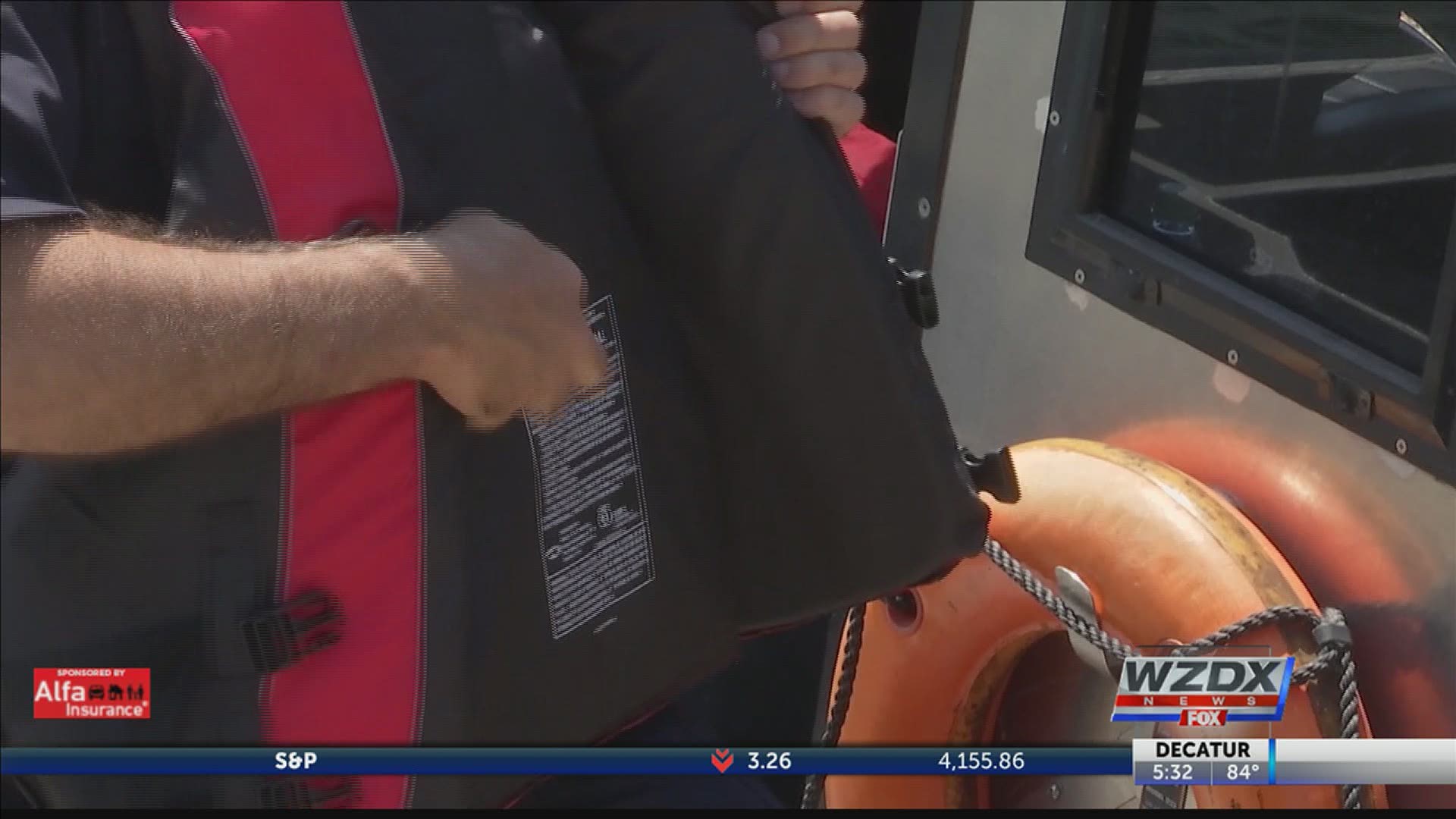GUNTERSVILLE, Ala. — Memorial Day and summer mean Alabama boaters will be out on the water. These trips should be fun, not fatal. ALEA's Marine Patrol Division as tips on how to stay safe on the water.
Between Oct. 1, 2019-Sept. 30, 2020, Marine Patrol investigated 107 boating-related crashes, resulting in 14 fatalities. The year before, 110 boating-related crashes, with 29 fatalities. ALEA’s Secretary Hal Taylor said, “Many of those fatalities could have been prevented by the simple act of wearing a proper personal flotation device (PFD). With your assistance, we can make this extended holiday weekend on the water safer for everyone, but it will require the use of PFDs and courtesy among boaters, along with an understanding of safe boat operation and the dangers of consuming alcohol.”
How can I be safe on the water?
Here are some important safety tips from ALEA’s Marine Patrol Troopers to help keep you and your family safe:
- Holidays are not the time for novice boaters to learn to operate their crafts. Operator inexperience is one of the leading contributing factors to boating crashes in Alabama. New operators should consider attending an in-person boating-safety class prior to going to the water.
- Be mindful of other boaters. Avoid passing too closely to boats in motion, boats at idle and individuals in the water.
- Boaters should avoid the use of alcoholic beverages or use the designated operator system. The sun, wind and other weather conditions already produce an effect on boaters known as “boater fatigue,” and the consumption of alcohol only compounds and intensifies the effect.
- When towing or pulling individuals on tubes or water skis, avoid spending prolonged periods in small areas. Look for calm, open water where boating traffic is light.
- Everyone should wear a U.S. Coast Guard-approved PFD (life vest) when under way, particularly at night. Operators are responsible for everyone on board and should ensure all passengers know where PFDs are stored, how to reach them quickly and how to use them properly.
- Children younger than age 8 are required to wear PFDs at all times (unless inside a permanently affixed cabin enclosure). They also should wear PFDs that are the appropriate size.
- All individuals being pulled by a vessel on water skis, tubes or other aqua-planing devices also are required to wear U.S. Coast Guard-approved PFDs.
- Operators must follow the capacity-plate requirements and never overload vessels beyond recommended safe-carrying capacity. These restrictions will include the weight of equipment and all individuals on board.
- Under Alabama law, canoes, kayaks and stand-up paddleboards are considered to be vessels and are subject to PFD requirements. There must be one U.S. Coast Guard-approved PFD on board for each occupant; and children younger than age 8 on board these crafts are required to have them on at all times.
- Vessels passing head-on must keep to the right. In a narrow channel, vessels will keep to the right of mid-channel.
- Vessels passing or approaching another vehicle must be operated in such a manner and at such a rate of speed that will not create a hazardous wash or wake.
- Avoid boating at night unless familiar with the body of water. Then, operate at a reduced, safe speed. Make sure all navigation lights are in proper working order and displayed properly.
- Have a cell phone and flashlight on hand in case of emergency.

